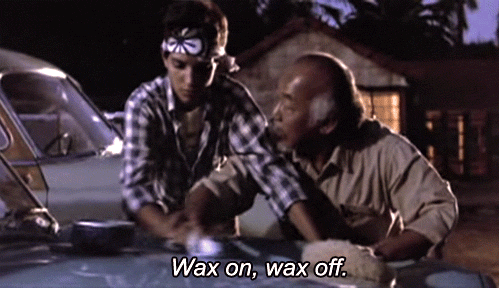Last time, we discussed the overall requirements that need to be met to become a licensed professional engineer. In Ontario, you must:
- be 18 or older
- of good character
- meet the work experience requirements set forth by the PEO
- write and pass the Professional Practice Exam.
The first two don’t require much additional explanation, but the last two need to be elaborated upon. In this post, I’ll discuss the PEO’s work experience requirements. Remember that each province/territory has its own licensing body and that their requirements may differ somewhat from those presented here.
The official description of the PEO’s work experience requirements can be found on this webpage and in this detailed PDF. At the highest level, the requirement is for 4 years of “acceptable engineering experience” with at least 1 year of that experience in a Canadian jurisdiction under the supervision of a licensed engineer.
What is acceptable engineering experience?
So we’ve established that you need at least 4 years, but of what? Employment? Alas, it’s a tad more complicated than that.

First, the experience needs to be relevant to the discipline that you studied. So if you graduated with a degree in mechanical engineering, but are working in what would be considered a civil engineering role, you will likely have difficulty convincing the PEO that this work experience be counted.
Next, you need to demonstrate that your experience sufficiently covers 5 quality-based experience criteria set forth by the PEO. The criteria are:
- Application of Theory (analysis, design & synthesis, testing methods, and implementation methods)
- Practical Experience (function of components as part of larger system, limitations of engineering, significance of time, standards & regulations)
- Management of Engineering (planning, scheduling, budgeting, supervision, project control, risk assessment)
- Communication Skills (written work, oral reports, presentations)
- Social Implications of Engineering (value & benefits, safeguards, relationship with public, role of regulatory agencies)
This is a short summary of the 5 criteria, which are described in greater detail here. The first two, Application of Theory and Practical Experience, are mandatory components and you must prove that most (but not necessarily all) of your experience includes elements of these. Despite the implication of the “mandatory” components, the remaining three criteria (Management of Engineering, Communication Skills, and Social Implications of Engineering) are not optional. You need at least some experience in each category to be eligible for licensing.
When it comes time to apply, it is up to the applicant to prove that their experience meets these criteria by providing supporting documentation that describes, in reasonable detail, their experience. This is no small task. As any “efficient” engineer would, I’ve tried to find some examples to follow, but there either isn’t much out there or my Google skills are failing me. That’s one of the reasons I started this blog. Once I actually start the application, I plan to provide my own example of how to document your experience (and we’ll eventually find out whether it’s an example worth following!).
When can I get this experience?
Most of your experience will be accrued after completion of your undergraduate engineering degree in the “real world”, working for a private or public organization. However, there are other types of experience recognized by the PEO:
- Pre-graduation: be it co-op, internship, or summer job, if it falls under the 5 quality-based criteria and occurred after you passed the academic halfway point of your degree, it could count for up to 12 months of experience.
- Postgraduate: “…applicants normally receive a one-year experience credit for successful completion of a postgraduate degree in engineering in the same discipline as their undergraduate degree”*
*If you’ve been reading this blog, you’ll remember that my undergraduate degree was in Computer Engineering, while my Master’s degree was in Biomedical Engineering. Needless to say that language for the 12-month credit was a bit scary for me. I asked the PEO about this and while they were somewhat cryptic, I was left with the impression that the decision of whether my graduate degree qualifies will be left to the discretion of the reviewers. I’ll just have to do a good job describing it and trust that they’re reasonable people.

Oh Canada?
We already mentioned that as part of the minimum 4 years of experience required, the applicant “must acquire at least 12 months of acceptable engineering experience in a Canadian jurisdiction, under a licensed professional engineer (P.Eng.)“. This requirement is typically easy enough to achieve for Canadian-educated engineers, but can be a barrier to newcomers to Canada with foreign credentials. It’s a bit of a Catch-22 where a person without Canadian experience faces a difficult time to find employment that will allow them to put Canadian jobs on their resume.

But wait! It seems that change may be on the way. The Ontario Human Rights Commission recently took the “position that a strict requirement for “Canadian experience” is discriminatory, and can only be used in rare circumstances“. This includes professional regulatory bodies! I haven’t seen a response from the PEO yet, but perhaps in the future this requirement will be lifted. As an aside, I’m personally undecided on whether this makes sense for the engineering profession. While I understand and sympathize with the extra barriers that Canadian immigrants face while trying to find employment in their field, I don’t feel that asking for 1 year of experience (out of a total of 4) is an onerous requirement.
Thanks again for reading. I should have said this in an earlier post, but I would love to hear from readers who find some value in this blog. Whether it’s questions, comments, suggestions, or even personal stories, I encourage people to leave a comment on the blog (comments are moderated) or to contact me directly (pengapplicant |at| gmail |dot| com). I would especially love to hear from licensed engineers or those aspiring to the P.Eng. to hear your stories.